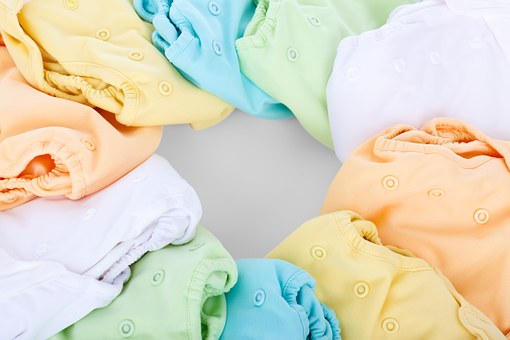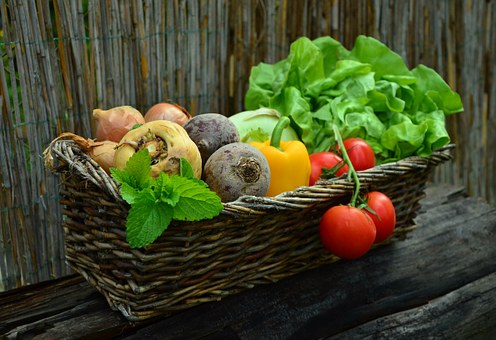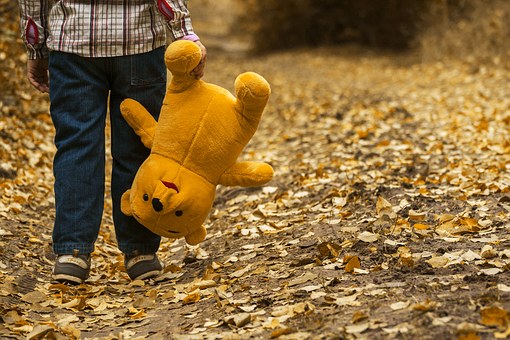Later this week on Friday 21 June, also the Summer Solstice, lots of children and young people across the UK, including my 10-year-old and his friends, are planning to go on strike. Some for the fifth time this year. In February, more than 10,000 students across the UK went on strike to protest lack of government action to combat our climate crisis, and in March the number joining in with the #YouthStrike4Climate school strike was over 50,000.
40 Family Friendly Ways to Reduce Your Carbon Footprint
What is Youth Strike 4 Climate?
#YS4C is an event hosted by UKSCN a student-led organisation that largely focuses on promoting the views of other students, particularly those under 18 who therefore don’t have voting rights, with the aim of fighting for our future on this planet. Taking to the streets to protest the government’s lack of action on the Climate Crisis.
The UK Student Climate Network draws a lot of inspiration from the ideas and campaigning of Swedish 16-year-old climate activist Greta Thunberg and #FridaysForFuture.
Climate Change or Climate Crisis
Earlier this year The Guardian changed its reporting guidelines for its journalists on issues regarding the environment. Instead of “climate change” reporters are now expected to refer to climate change as the “climate emergency, crisis or breakdown”. In addition, “global heating” will be preferred to “global warming”, while “climate science denier” will replace “climate sceptic”. The UN has also taken to using the phrase “climate emergency”.
Many of the changes to the Earth's climate are caused by human activity - this means things that humans are doing. BBC Newsround has a great page all about Climate change: What is it and why is everyone talking about it?
What is a carbon footprint?
A carbon footprint is the amount of carbon dioxide released into the atmosphere as a result of the activities of an individual, organisation, or community. According to the Committee on Climate Change, the average household produces 8 tonnes of CO2 emissions. Around 2 tonnes of this comes from heating our home with a further 1.25 tonnes through electricity usage. Most scientists believe that carbon dioxide and other gases like it are contributing to global warming or the slow climate change of our planet.
So, our carbon footprint measures the total amount of greenhouse gases emitted as a result of our daily activities. When we drive to work, run appliances in our homes or sneak off for a weekend getaway, we cause the burning of fossil fuels, which provide the energy needed to power your lifestyle.
How can I reduce my carbon footprint?
Methods of reducing your carbon footprint include driving more-efficient vehicles (or making sure that your current vehicles are properly maintained), taking public transportation, using energy-efficient appliances, insulating your home to reduce heating and air conditioning costs, consuming food that doesn't require as much transportation, and eating less meat, which has a higher carbon footprint than fruits and vegetables.
What is carbon offsetting?
Carbon offsetting is most commonly used in relation to air travel. It allows passengers to pay extra to help compensate for the carbon emissions produced from their flight. The money is then invested in environmental projects - like planting trees or installing solar panels - which reduce the carbon dioxide in the air by the same amount.
Individuals and companies can also offset some of their CO2 emissions by purchasing carbon credits, the money from which can go into projects such as planting trees or investing in renewable energy.
However, carbon offsetting is often criticised as an excuse to continue polluting, arguing that it does little to change behaviour. Although better than nothing, cutting has got to be better than offsetting.
Cutting Greenhouse Gas Emissions
There are new proposals to cut greenhouse gas emissions in the UK to almost zero by 2050, under the terms of a new government plan to tackle climate change. Britain is the first major nation to propose this new target, an increase in the existing 2050 target of reducing emissions which is 80%.
National Geographic Magazine recently reported that replacing the carbon-heavy beef on your plate with carbon-light chicken will cut your dietary carbon footprint a shocking amount: in half.
There are a lot of things that make up your personal carbon footprint, that we have little or no control over, but there are many things we do have control over including what we eat and drink; how and where we live; how we travel around and the things we own. So, what can we do now to reduce the emissions from our family homes?
Saving the Planet
In our household we already do #MeatFreeMondays at home and at school, and only one of us eats any meat at all, buy energy efficient appliances, we try and switch off lights, have the heating set at 18 degrees, walk to take the bus when possible, use energy saving lightbulbs, try and avoid food waste, and re-use household plastics.
Yet these small things although better than nothing is not going to cut our carbon footprint to zero, so I’ve asked other families for inspiration and find out the simple things they are doing to try and save the planet.
40 Family Friendly Ways to Reduce Your Carbon Footprint
There are a number of easy, simple and quick ways to make a significant impact on the environment that you can implement every day. Here are 40 tips from families …
Health & Beauty & Baby Products
- Shampoo bars
- Menstrual Cup
- Period Pants
- Reusable Nappies
- Vegan Deodorant
- No wipes
- Fabric cloths instead of wipes
- Bamboo toothbrushes
Lucy “I've switched to all natural hair and body products, including hair soap, which I buy, and some that I make. It's not that time consuming, but it is cheaper and saves on plastic and chemicals down the drain.
Nyomi "I switched to completely reusable menstrual products. I use a menstrual cup and period pants instead and they are so much better as well as being better for the environment.
Erica “Reusable nappies, wipes and sanitary protection. Much better for the planet and for you!” Www.theincidentalparent.com
Rebecca “We’ve also switched to cloth swimming nappies for this summer to cut down on disposables”
Emma “We’ve switched to reusable nappies and wipes, use a moon cup, and buy bars of soap. Less shopping, less waste and far simpler".
Jade "I use reusable cloth sanitary products."
Chantelle “Switched to Bar Shampoo/Conditioner. I'm trying to reduce plastic all over, but this one was the easiest and least expensive to do. My kiddo LOVES using bar shampoo more than liquid, and one bar lasts ages longer than a bottle.”
Sarah “We only use solid shampoo, soap, conditioner and I use a moon cup instead of tampons or sanitary towels”
Chermaine “I switched up my deodorant to Nuud which is harmless to me and the planet as well as being vegan, sustainable and the everything is biodegradable...including the tube it comes in. I only need to apply it weekly so it means I'm buying fewer cans/sticks/roll-ons so wasting less. The small 15ml tube has lasted me almost 6 months.”
Jade "Instead of using lots of baby wipes for the after-dinner cleanup, we bought a pack of 10 cotton flannels from Ikea. We use them with warm water, and they just go in the wash with the rest of our clothes. They're better at cleaning up the mess, and much kinder on little one's skin."
Fern “I have been buying fabric cloths instead of baby wipes/antibacterial wipes, and make sure I am on top of all recycling.
Food and drink
- Take a picnic
- Pack a flask
- Grow fruit and make jam
- Reusable pouches
- Decant big packets into small storage jars
- Vegetable boxes
- Grow your own veg
- Eat less meat
- Use a meal plan to reduce waste
- Less dairy produce
- Reuse carrier bags
- Milk delivered in glass bottles
Sarah "We tend to pack a picnic rather than get packaged fast food, I carry around a flask of tea!
Nikki “At the moment I am collecting glass jars as my plum tree has a glut of plums and will make enough plum jam for the next few years!”
Lynne “We use reusable pouches for the kids' snacks and decant big bags of snacks into the snack bags for packed lunches and out and about. We also use weaning pouches for yoghurt, again decanting large pots of yoghurt into them.”
Victoria “We also grow some of our own fruits and vegetables each year and use organic vegetable boxes to support local organic farms and reduce how far our food comes from.”
Beth “My kids' school gave each family a beeswax wrap for their school lunches. I’ve found them brilliant and have so many uses so have stopped buying foil and cling film and invested in more wraps.”
Becky “At the minute I have tried to focus on the food we eat and food waste. We eat less meat, we have gone from maybe 1 veggie meal in a fortnight to between 3 and 5 a week! So a huge change. Also ensuring our meal plan uses what we have, using our eyes and noses as to whether foods can be eaten. It took a bit of time for my husband especially to get used to it, but the kids converted easily.”
Kayleigh “We are switching away from dairy and reducing the amount of meat we eat. We are trying to buy fewer things in plastic packaging and finding ways to reuse the things we have. I’ve also switched our electricity to a renewable green provider. Our focus is trying to reduce, reuse, recycle and we are also avoiding buying new things until we need to and looking for things second hand. The only one I can’t change my partner's mind on is anti-bacterial hand soap in plastic bottles which is very frustrating because it is such a simple swap!
Lara “This year we are trying to grow more of our fresh food in the garden, it's a great activity for the children to enjoy, plus we get delicious vegetables on the table! Every day after school they run in to see what's new in the crop and how well they are doing. It's a great way of teaching them about the food we eat as well as helping with our carbon footprint!”
Fern “I am new to this really but have been trying to make little changes as and when I can, like re-using carrier bags whenever I shop or not opting for bags if it is online."
Erin “We are getting our milk delivered in glass bottles. It is a bit more expensive but I find I don't over pour or 'waste' any, so I think we are using less overall. It's such a nice treat to have and no plastic cartons!”
Jade “One thing we do have access to which many families don't is a supermarket that is a reduced waste supermarket, it sells close to 'use by' and also overstocked items or foods which don't look right on Waitrose shelves. This massively helps as otherwise, all this food would go to waste, sadly it's a member only and only if you work at certain places.
Sarah "I have an allotment and produce our own eggs, fruit and veg there."
Nyomi "We’ve stopped buying clingfilm and stick to tin foil for wrapping. We have lots of veggie/vegan meals".
Your home and energy
- Switch to a renewable energy provider
- Use lemon juice, vinegar and soda to clean the house
- Dry clothes outside not in a tumble dryer
- Turn power switches off at night
- Use the thermostat to control heating
- Install a water softener and filtration system
Victoria “We switched to a renewable energy supplier (Bulb) which reduced our energy bills by over £200 a year and means we’re using 100% renewable energy so it was a no-brainer to switch.”
Sarah “We only use lemon juice, vinegar and soda for house cleaning. We dry our clothes outside if it is sunny, rather than use the dryer."
Rebecca “We turn off the power to any appliances we are not using, especially at night.”
Christy “I haven't used a tumble dryer or a dishwasher in 5 years and installed a Nest thermostat to make our central heating more efficient."
Nita “We installed a water softener and filtration system in our home which protects our appliances and reduces the use of soaps and detergents, we have also made our own cleaning products.
Jade "No tumble dryer in our house".
Transport and travel
- Electric Car
- Walk to school whatever the weather
- Don't fly - use boats and trains
- Have a mini-adventure i.e walk rather than take the car
- Go camping rather than take a holiday abroad
Nyomi "We stick to one car, not 2 so I rarely drive and we are about to switch our car to electric."
Terri "We always walk the school run, it isn't far but when the weather is bad it is tempting to jump in the car but now we just grab our wellies and brollies and walk. I also like how it gives us time to talk on the way there and back about our day."
Amy Mighalls “We are ditching the car more often in favour of walking.
Jade “We don't use a plane to go on holiday as there is plenty of fab places in the UK (we drive but public transport when at the place usually).
Yvette "We also drive less and walk more and the kids love it. We call the walks our ‘mini adventure’
Sarah “We have not taken a flight in 5 years - always take the train or boat.”
Carla-Marie “We have started to walk anywhere that is under 2 miles away and we have bought bikes to cycle too, we barely use the car anymore and my little boy loves it”
Fern “We are just about to get rid of our car which is slightly scary but we no longer want the stress or expense and know it will help the planet too.”
Chantelle “We don't own a car. We've never owned a car. We will never own a car. We live in Central London and by design only ever take transit or bikes whoever we need to go (especially when travelling out of the city). Sometimes taxi/uber, but we rarely even rent cars. Cost isn't even a factor as we're saving heaps by using trains and public transit, especially with the ULEZ in effect. My daughter gets very travel sick, and my husband hates driving so this is an easy one for us, we all prefer it.”
Emma “We’ve decided not to take any more holidays abroad, camping instead. only drive when we have too, cycle & walk to town.”
Things you own
- Reusable Water Bottles
- Reusable Straws
- No cling film
- Beeswax Wraps
- Reusable bamboo coffee mugs
- Stainless steel water bottles
- eco-friendly glitter
- Buy experiences rather than things
- Make presents
Amy Mighalls “We are taking steps to reduce our waste, using reusable wipes, buying less single-use plastic and switching to alternatives.
Emma “We all have a reusable bamboo coffee mug, stainless steel water bottle and stainless steel straws that we take out and about with us. We've also changed over to bamboo toothbrushes and for our festivals this year we have eco-friendly glitter”
Christy “We try to buy plastic-free wherever possible and have made some changes like glass milk bottles, bamboo toothbrushes and re-usable wipes rather than disposables. I think my family are pretty happy with the changes except my husband was very unimpressed with my shampoo bar instead of his squeezy bottles!”
Emma “We’ve all changed to reusable water bottles & metal straws. Loving the new changes”
Terri “We also use reusable water bottles to try and reduce our plastic use and reuse our carry bags instead of buying new ones with every shopping trip”.
Fern “We are just about to get rid of our car which is slightly scary but we no longer want the stress or expense and know it will help the planet too. Oh and we also reuse the same water bottles each & take it out with us if we go anywhere. I still have a lot to learn but trying my best!”
Nita “Reduced unnecessary plastic use (straws, disposable cutlery), bring our own cup/bottle when out so we can refill or buy hot drinks with.”
Emma “We’ve switched to reusable bottles, bamboo coffee cups, paper straws.”
Jo “We're quite focused on reducing. For example rather than a plastic toy birthday presents family have given our boys money which we then pool together and spend on a day out somewhere/ camping trip etc. They save their pocket money and any extra that they get for experiences rather than 'stuff' too. They're 8, 6 and 4 and get a buzz out of saving and also knowing that they're not adding to their toy pile but still getting something special.”
Rebecca “We’ve switched to bamboo kids plates and toothbrushes. We’ve just found some awesome ways to make our own toys and activities with household items etc and stopped buying expensive plastic, mass-produced toys!”
Deb x
Images from Pixabay.
To be kept up to date with events, new openings, recipes, things to do and child-friendly places to take the kids, plus giveaways then follow My Boys Club on Facebook, Instagram or Twitter too.
























1 Comments
I am regular reader, how are you everybody? This article posted at this website is really fastidious.
ReplyDelete